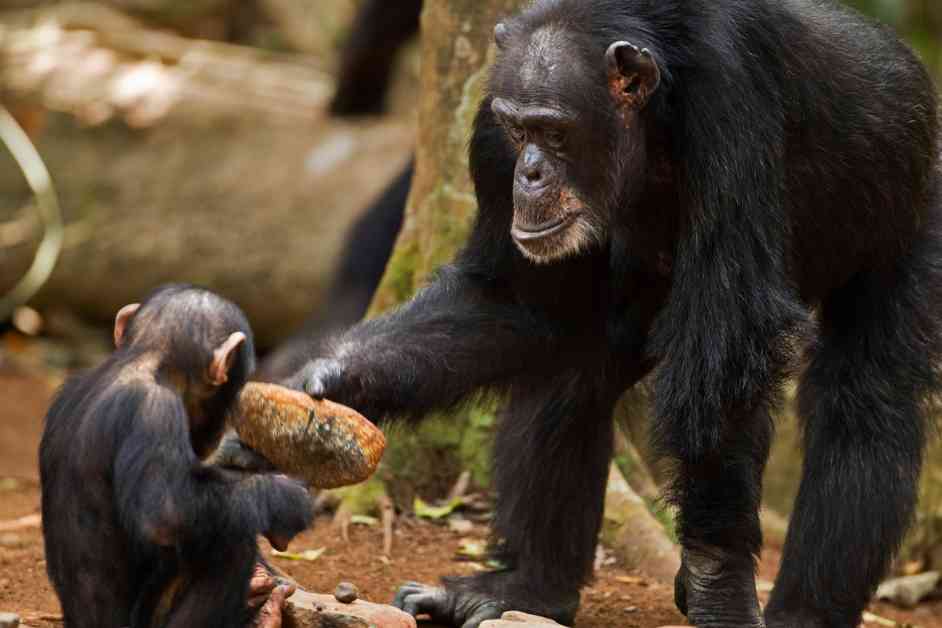Chimpanzees are known for living in hierarchical social communities where male members typically stay within the same group. To prevent inbreeding, female chimps migrate to new communities once they reach adulthood. This migration not only brings new genes to the group but also new knowledge and skills. Over thousands of years, female chimpanzees have played a crucial role in driving cultural innovation by spreading behaviors between communities. These behaviors were then combined with existing traditions to create layers of innovation, resulting in the development of increasingly complex tool sets.
A recent study conducted by Cassandra Gunasekaram, a doctoral student in evolutionary biology at the University of Zurich, reveals that chimpanzees are capable of building on innovations over time to make them more efficient. This challenges the notion that only humans are capable of such cultural evolution. The research emphasizes the importance of social connections between different populations of chimpanzees in driving the complexity of their culture.
While the concept of nonhuman animals exhibiting culturally learned behaviors was once controversial, numerous examples of animal culture have been documented in recent years. The new study on chimpanzees demonstrates cumulative culture, which involves the transmission of knowledge from one generation to the next, leading to the development of increasingly sophisticated technologies. This process of gradual accumulation of ideas and breakthroughs, contributed by multiple individuals, results in complex innovations that no single individual could create alone.
The study conducted by Gunasekaram, Andrea Migliano, and their colleagues utilized genetic data from 240 individual chimpanzees across 35 different communities to trace past encounters among the animals. By analyzing genetic relatedness and cultural similarities, the researchers found that female migrations play a significant role in driving innovation, particularly in the development of complex tool sets. This suggests that social transmission between groups is crucial for the advancement of sophisticated cultural behaviors among chimpanzees.
The findings of this study provide compelling evidence that wild chimp traditions are indeed cultural and have evolved cumulatively over time. The research challenges the traditional view that cumulative cultural change is unique to human societies. By demonstrating the capacity of chimpanzees to exchange and combine ideas, the study sheds light on the evolutionary origins of cultural innovation in nonhuman species.
Overall, the study highlights the remarkable abilities of chimpanzees to engage in cultural evolution and underscores the importance of social interactions in driving the complexity of their cultural behaviors. By expanding our understanding of how chimpanzees innovate and collaborate to develop increasingly sophisticated tool sets, we gain valuable insights into the evolutionary processes that shape cultural diversity in nonhuman animals.










